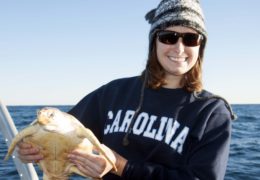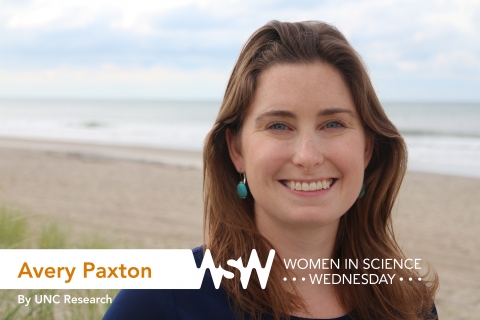When you were a little girl, what was your response to this question: “What do you want to be when you grow up?”
At career day in second grade, I dressed up as a dog breeder! Later, I dreamed of being an archaeologist or a paleontologist. My answer switched again in middle school when I decided I wanted to be a marine biologist.
Describe your research in five words.
“How to protect fish homes.”
Share the pivotal “moment” in your life that helped you choose research as a career path.
While diving on a shipwreck from World War II, I noticed a bright yellow fire hose strewn across the stern that had been used by other divers to illegally excavate and remove historic artifacts. This disturbed me because the shipwreck was a war grave and a reef for fish. I thought that if shipwrecks were viewed as valuable cultural and living resources, conservation may be more successful. So, as an undergraduate student, I decided to study how fish use shipwrecks for their home.

Photo courtesy of the Institute of Marine Sciences
Paxton prepares to release a loggerhead turtle that traveled all the way to the North Carolina coast from Monterey Bay, California.
What’s a crazy thing that happened while you were doing research?
Seeing an 11-foot great white shark underwater. It was certainly an unexpected and humbling treat to see such a magnificent animal. I consider it a testimony to how the shipwrecks that I study are truly oases for marine life. They form homes for tiny fish all the way up to top predators in the oceans.
What advice would you give to up-and-coming female researchers in your field?
Do what you love! Find what you’re passionate about and work to turn it into your career. I wake up every day and am excited to get out of bed to go to work. At times, it was a tough road to get here, yet one of the biggest lessons I learned was that you can do anything you set your mind to.


